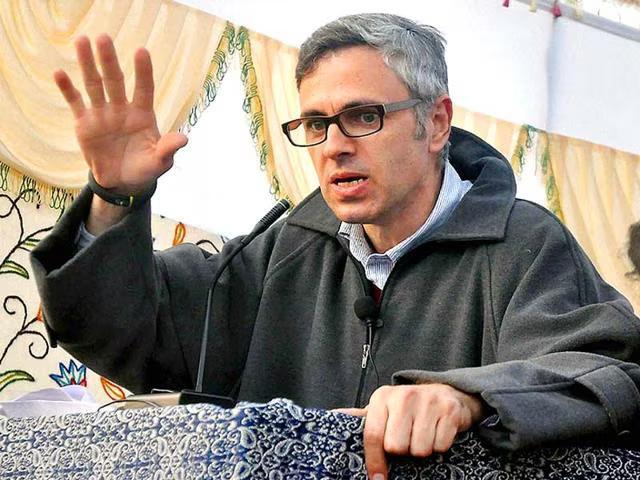
US Doesn’t Care About Any Other Country: J&K CM Omar After Trump-Pak Army Chief Lunch
The recent luncheon hosted by US President Donald Trump for Pakistan Army Chief General Asim Munir has sparked a heated debate in the political circles. While the move has been seen as a significant development in the ongoing Indo-US-Pak relations, Jammu and Kashmir Chief Minister Omar Abdullah has reacted sharply to the news, highlighting the stark reality of the US’ priorities.
In an interview with a leading news outlet, Omar Abdullah was quoted as saying, “We can’t dictate to the US President whom he should invite for dinner. We used to think the US President was our close friend, and he’d respect that, but the US does what benefits them, they don’t care about any other country.”
Abdullah’s statement comes as a stark reminder of the changing dynamics of international relations. While the US has traditionally been seen as a key player in global affairs, its actions in recent times have raised questions about its priorities and allegiances. The luncheon with Pakistan’s army chief, in particular, has been seen as a significant development, given the country’s long-standing ties with India.
The US-Pakistan relationship has been marked by a complex web of interests, with both countries having cooperated on several fronts, including counter-terrorism efforts. However, the relationship has also been marred by disagreements over issues such as Pakistan’s alleged support to terrorist groups and its nuclear ambitions.
The recent luncheon, therefore, is seen as a significant development in the ongoing efforts to strengthen ties between the two countries. However, for Omar Abdullah, the move is a stark reminder of the US’ priorities. According to him, the US is a country that does what benefits them, without considering the interests or concerns of other nations.
Abdullah’s statement is not without merit. The US has a history of pursuing its own interests, often at the expense of other countries. From its involvement in the Middle East to its stance on global issues such as climate change, the US has consistently prioritized its own interests over those of other nations.
In the context of the Indo-US-Pak triangle, Abdullah’s statement takes on added significance. The US has traditionally been seen as a key player in the region, with ties stretching back to the Cold War era. However, in recent times, the US has been accused of playing both sides, with some analysts arguing that the country is using Pakistan to exert pressure on India.
The recent luncheon, therefore, is seen as a significant development in the ongoing efforts to strengthen ties between the US and Pakistan. While the move has been welcomed by some in Pakistan, it has also been criticized by others, who see it as a sign of the US’ willingness to accommodate Pakistan’s interests at the expense of India.
For Omar Abdullah, the luncheon is a stark reminder of the US’ priorities. According to him, the country is a pragmatist that does what benefits it, without considering the interests or concerns of other nations. While Abdullah’s statement may be seen as a criticism of the US, it is also a reflection of the changing dynamics of international relations.
In a world where countries are increasingly looking out for their own interests, it is no longer possible to assume that other nations will automatically respect or prioritize your interests. The US, in particular, has a history of pursuing its own interests, often at the expense of other countries.
As the world moves towards a more multipolar era, it is essential for countries to be pragmatic and realistic about their relationships with other nations. While there may be times when countries cooperate or collaborate, there are also times when they have to prioritize their own interests.
In the context of the Indo-US-Pak triangle, Abdullah’s statement takes on added significance. The US has traditionally been seen as a key player in the region, with ties stretching back to the Cold War era. However, in recent times, the US has been accused of playing both sides, with some analysts arguing that the country is using Pakistan to exert pressure on India.
The recent luncheon, therefore, is seen as a significant development in the ongoing efforts to strengthen ties between the US and Pakistan. While the move has been welcomed by some in Pakistan, it has also been criticized by others, who see it as a sign of the US’ willingness to accommodate Pakistan’s interests at the expense of India.
For Omar Abdullah, the luncheon is a stark reminder of the US’ priorities. According to him, the country is a pragmatist that does what benefits it, without considering the interests or concerns of other nations. While Abdullah’s statement may be seen as a criticism of the US, it is also a reflection of the changing dynamics of international relations.
In the end, Abdullah’s statement serves as a reminder of the need for countries to be realistic about their relationships with other nations. While there may be times when countries cooperate or collaborate, there are also times when they have to prioritize their own interests.






